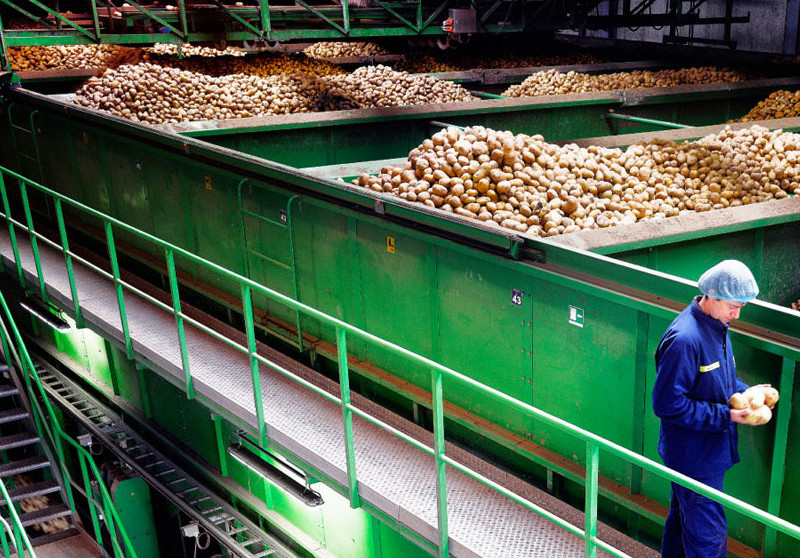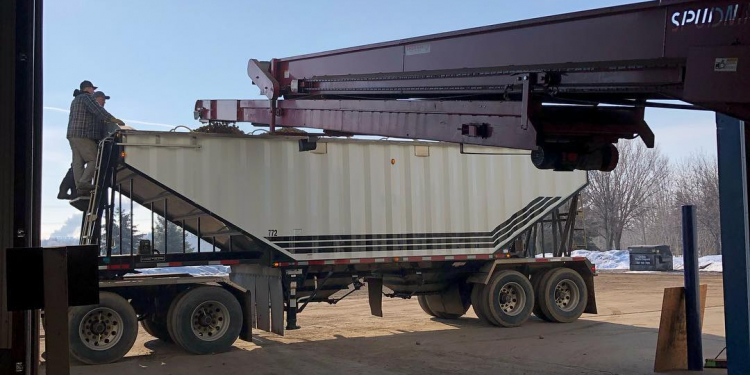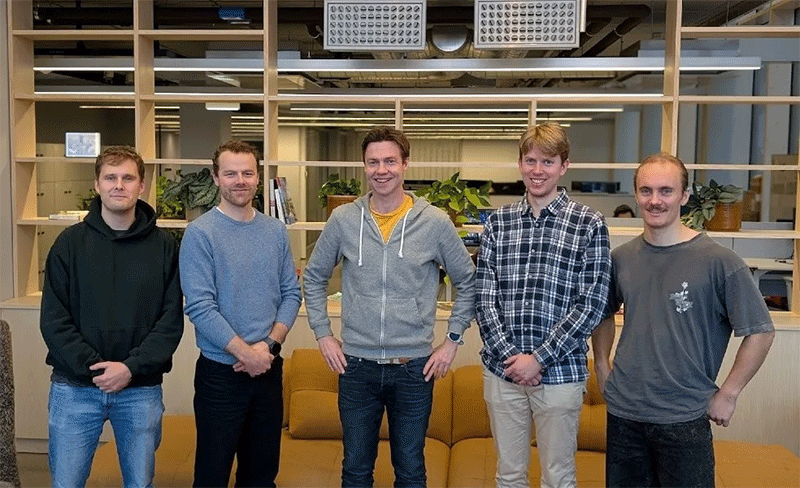In one week, the free market price of potatoes rose by no less than EUR 30 to EUR 200 per tonne. According to the Dutch potato market expert Kees Maas, after 15 years we have switched from a supply-driven to a demand-driven market. At Belgapom it is said that it is still a bit too early to draw this conclusion, although it is clear that there is movement in the market.
For the first time in 15 years
Christophe Vermeulen of Belgapom, the professional association for the Belgian potato trade and processing, was also shocked last Friday when the Belgapom quotation suddenly rose to 200 euros per ton. “It was clear that a price increase was imminent,” he says in a conversation with VILT. “But I didn’t expect the increase to be so significant, actually relatively early in the season.”

In the Netherlands, where free market prices are still below the Belgian level, the movement on the Belgian potato market is viewed with suspicion. “In the past 15 years, I have never seen the potato market change so quickly as in the past three months,” says Kees Maas, director of the Dutch DCA Group, which specializes in market analyzes and risk management in agricultural markets.
In an opinion piece on Boerenbusiness , DCA’s news website, he concludes that the potato market has evolved from a supply-driven market to a demand-driven market. “For years, potato processors in the EU4 (the Netherlands, Belgium, Germany and France) had more than enough potatoes available. They always grew more than they needed. That way they kept their hand on the wheel,” says Maas. “But even in times of corona, processors have continued to build on their factories. In the past two years alone, 750,000 processing capacity has been added.”
Tipping point reached
When there is more processing capacity and more demand for potatoes than are grown in the EU4, he believes a tipping point has been reached. This effect was reinforced last year by the shrinkage of the acreage by 6 percent and a fluctuating yield as a result of intensive cultivation practices and increasing weather extremes.
Maas is convinced that the acreage in the EU4 will have to grow by 12 to 15 percent in the coming year to meet the demand for potatoes. Something he considers unlikely. “Where should those potatoes be grown?” he wonders. “The Netherlands seems to have no space and quite a lot of growers have dropped out. Growth does not appear to be coming from Belgium either. After all, adjustments to the collective application have made seasonal leases even more difficult for many Flemish potato growers. Then only hope remains in France, the new potato paradise for processors in Europe. There are still opportunities there, but the high grain price seems to be throwing a spanner in the works there too.”
I’ve never seen processors compete on contract prices. Increasing contract prices in the meantime used to be a mortal sin, now it has happened twice already Kees Maas – Director DCA Group
Growers at the helm
The DCA director points out that the nervousness of the processors is increasing. “I’ve never seen processors compete on contract prices. Increasing contract prices in the interim used to be a mortal sin, now two Dutch processors have already increased the prices of their contracts in the meantime. It seems that war is being waged for the fries,” says Maas.

He is convinced that the growers will finally take control again. “Determine yourself what your conditions are, decide for yourself whether or not you sign. The opportunities are there,” it sounds. Maas advises growers to put aside their fears – the biggest motivation for concluding contracts, according to research by DCA – of the past 10 years. “Be smart, gather ten farmers together and jointly offer a large volume to three different factories and a trader. You will be surprised what can happen then”, is his advice.
Supply and demand in balance
At Belgapom it is recognized that there has been a lot of movement in the potato market in recent weeks. But talking about a change from a supply-driven to a demand-driven market is still a bit early, according to CEO Christophe Vermeulen. “I would rather say that supply and demand have become more in balance and then the nervousness may increase.” According to him, it had been clear for some time that we were moving towards a season with higher prices on the free market, but in his eyes it is still striking that 200 euros per ton are already being quoted at the beginning of February.
Vermeulen has also heard that potato growers are less inclined to conclude contracts in view of this market situation and the sharply increased production costs. “However, our members have done their utmost to substantially increase contract prices. Increases to 15 to 20 percent are no exception,” he says. In his view, the amended legislation that makes it more difficult to conclude seasonal leases has no direct impact. “That may well be the case from next year. But the last word has not yet been said about these changes regarding seasonal leases. The Agrofront is not at all satisfied with it either.”
If retailers still want local, high-quality products, they will have to think seriously. They have more than a kilo of butter in their heads in this story Christophe Vermeulen – CEO Belgapom
Between hammer and anvil
Like the rest of the processing industry, the potato processors are also between hammer and anvil, says the Belgapom CEO. “Our members have a very hard time passing on the increased costs of raw materials, energy, wages, etc. to their customers. That is a very difficult story,” it sounds.
Vermeulen calls on retailers to take up their responsibility. “The promotions with extortionate discounts must stop. If they still want local, high-quality products, they will have to reconsider. Retail has more than a kilo of butter on its head in this story,” he expresses his frustration.
He refers, among other things, to an action by Lidl that is currently running. “Lidl currently sells XXL bags of chips potatoes at 0.50 euros per kilo. Sorted, washed and packed, no one can make any money from that, right? Suppliers are pressured by the retail sector to participate in such promotions or they will be thrown out.” According to Vermeulen, there is an urgent need to put an end to these unfair commercial practices.
Source: Farming business / own reporting








